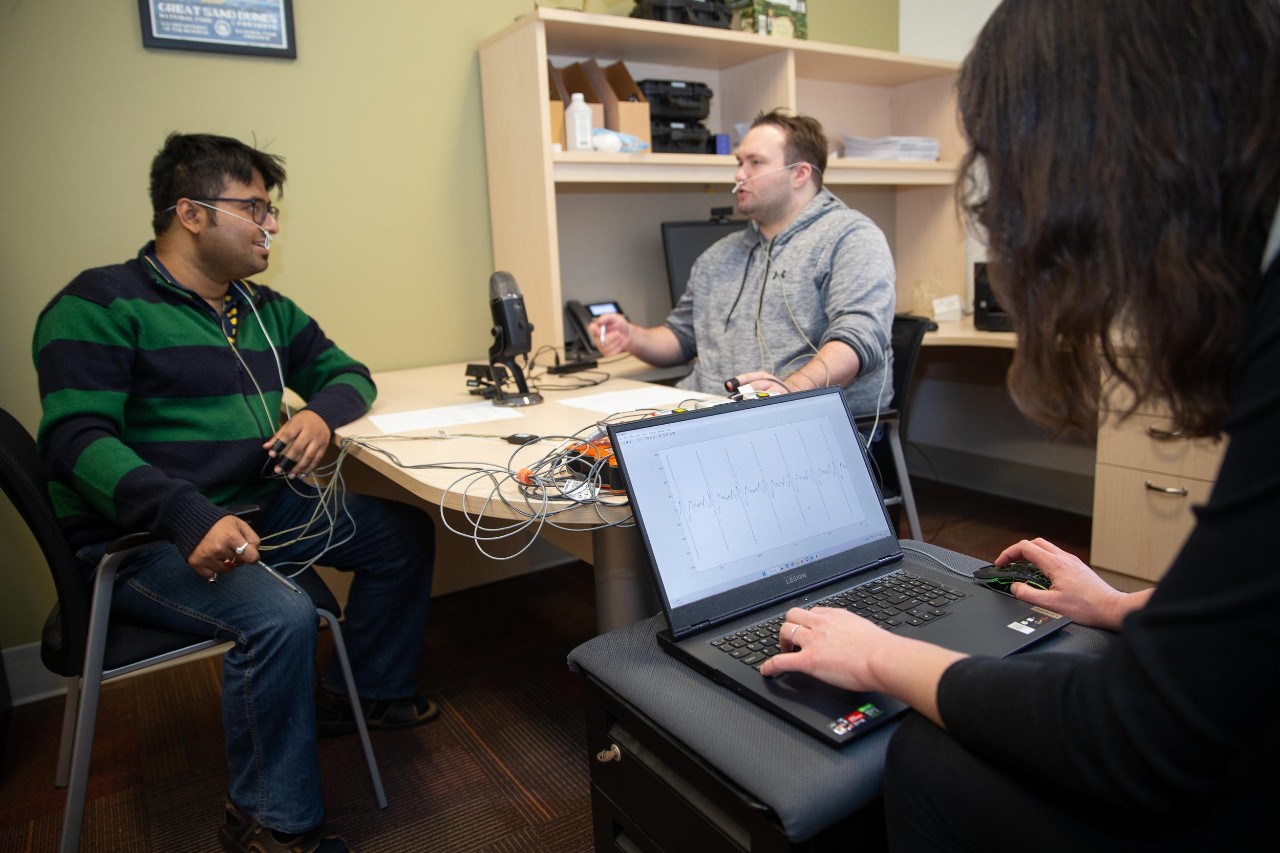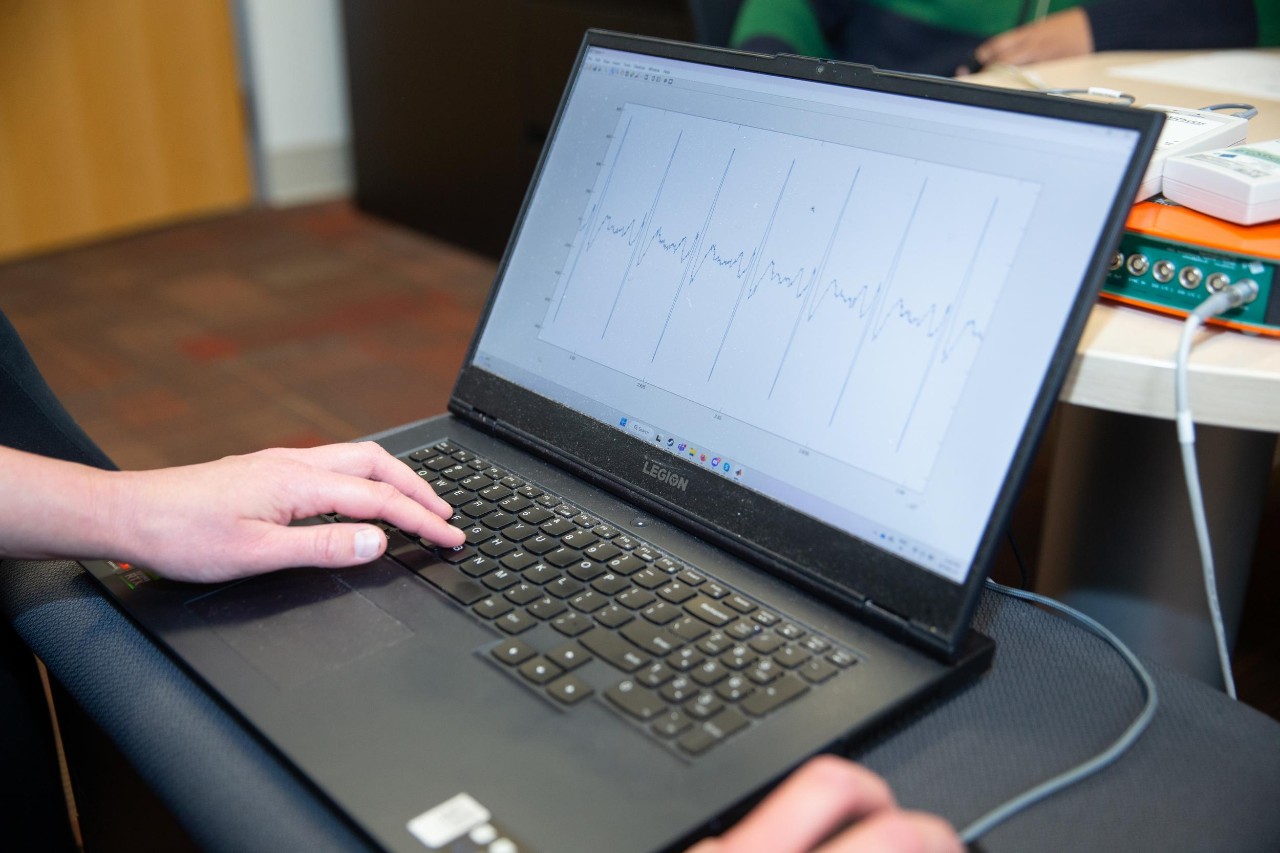
WFXB FOX: Computer can tell if you're a match
UC trained a computer to identify types of conversations based on the participants' physiology
WFXB Fox-TV highlighted research by engineers at the University of Cincinnati who taught a computer to recognize types of conversations based on the participants' physiology alone.
Researchers studied a phenomenon in which people’s heart rates, respiration and other autonomic nervous system responses become synchronized when they talk or collaborate. Known as physiological synchrony, this effect is stronger when two people engage deeply in a conversation or cooperate closely on a task.
In experiments with human participants, the computer was able to differentiate four conversation scenarios with as much as 75% accuracy. The study is one of the first of its kind to train artificial intelligence how to recognize aspects of a conversation based on the participants’ physiology alone.
The study was published in the journal IEEE Transactions on Affective Computing.
Lead author and UC doctoral student Iman Chatterjee said a computer could give you honest feedback about your date — or yourself.
“The computer could tell if you’re a bore,” Chatterjee said. “A modified version of our system could measure the level of interest a person is taking in the conversation, how compatible the two of you are and how engaged the other person is in the conversation.”
UC Associate Professor Vesna Novak said this field of affective computing could provide feedback to educators, therapists or other people who want to understand what's really going on in interpersonal dynamics.
Featured image at top: UC engineering students connected to sensors have a conversation while UC Associate Professor Vesna Novak monitors their physiological responses on a computer. Photo/Andrew Higely/UC Marketing + Brand
More UC engineering in the news

A computer screen shows the physiological responses of a person engaged in conversation. Photo/Andrew Higley/UC Marketing + Brand
- Jerusalem Post: New app can tell if you're a match
- Science Daily: Smash or Pass? This computer can tell
- India AI: Is your date a 'smash' or 'pass?'
- Gadzetomania (Poland): This computer can tell if you're a match
Related Stories
UC Day of Giving kicks off with celebration of scholarship gift
April 15, 2021
UC Day of Giving is kicked off with an important scholarship gift for nursing and engineering.
Village Life partners with UC International to support Global Scholars
April 14, 2021
Two students from Tanzania receive Global Opportunity Scholarships and get a big Bearcat welcome!
UC’s summer semester offers students short sessions, flexibility
April 12, 2021
Coming into the summertime of 2020, Sumedha Kappagantula was considering ways to make the most her opportunities during what is usually a break from the academic rigor of her traditional school year. As a Biomedical Engineering major in the UC’s College of Engineering and Applied Sciences, Kappagantula is minoring in Chemistry and Biological Sciences, taking classes through the College of Arts and Sciences. She thought summer semester would be a great time to get ahead in her coursework, and move her degree forward.
